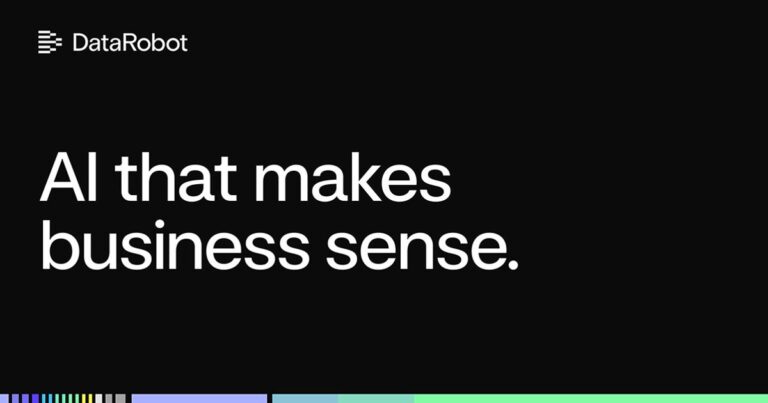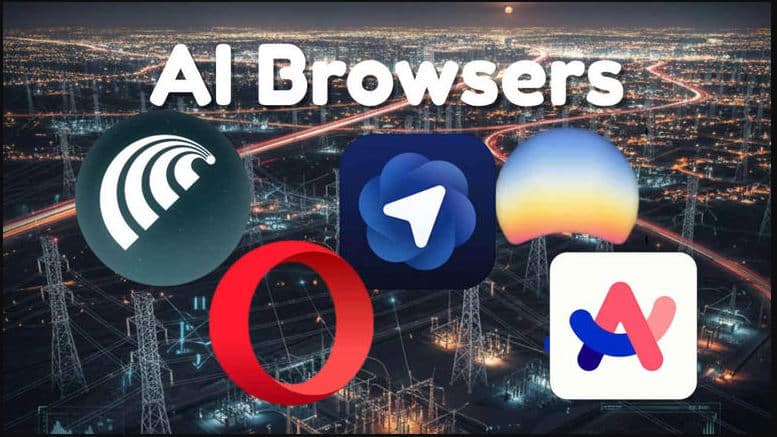The Best AI Tools for SEO Optimization: Boost Your Website’s Visibility in 2024
In today’s fast-paced digital landscape, search engine optimization (SEO) has evolved from a manual, trial-and-error process into a data-driven, strategic endeavor. With the rise of artificial intelligence (AI), marketers and content creators now have powerful tools at their fingertips to streamline their efforts, uncover insights, and stay ahead of the competition. AI-driven SEO tools leverage machine learning, natural language processing (NLP), and automation to analyze vast amounts of data, predict trends, and optimize content and strategies with remarkable precision. This article explores the top AI tools for SEO optimization, highlighting their unique features and how they can transform your approach to search engine rankings.
Why AI is Revolutionizing SEO Optimization
Traditional SEO practices often required hours of research, keyword stuffing, and guesswork. AI has changed this by enabling smarter, more efficient strategies. These tools can:
- Identify high-value keywords with predictive analytics.
- Analyze competitor content to uncover gaps and opportunities.
- Optimize on-page elements like meta tags, headers, and content structure.
- Generate content ideas based on user intent and trends.
- Automate technical SEO audits to detect and fix issues.
- Enhance user experience by tailoring content to audience preferences.
By integrating AI into SEO workflows, businesses can save time, reduce errors, and achieve better results faster. Now, let’s dive into the best tools reshaping the SEO industry in 2024.
Top AI Tools for SEO Optimization
1. Surfer SEO
Key Features: Content optimization, keyword research, on-page SEO suggestions.
AI Integration: Surfer SEO uses AI to analyze top-ranking pages and generate data-driven content templates. Its AI Content Assistant suggests the optimal structure, keyword placement, and content length based on competitor data.
Why It’s Great:
- Content Templates: By reverse-engineering high-performing pages, Surfer SEO helps create content that aligns with search intent and user expectations.
- Keyword Mapping: Its AI identifies primary and secondary keywords, ensuring content is both relevant and comprehensive.
- Ranking Predictions: The tool predicts the likelihood of a page ranking based on factors like content quality and backlink profiles.
Best For: Content creators and SEO specialists looking to optimize content for specific keywords and improve search visibility.
2. MarketMuse
Key Features: Content strategy, topic modeling, content gap analysis.
AI Integration: MarketMuse employs AI to analyze content quality, identify gaps, and suggest actionable improvements. Its AI-driven topic modeling helps uncover related keywords and subtopics.
Why It’s Great:
- Content Strategy: The tool maps out comprehensive content plans by analyzing competitors and industry trends.
- Content Gap Analysis: It highlights underdeveloped topics in your content library, guiding you to fill knowledge gaps.
- Quality Scoring: MarketMuse evaluates content for depth, originality, and keyword relevance, ensuring it meets search engine standards.
Best For: Teams managing large content libraries or aiming to build a data-backed content strategy.
3. Ahrefs
Key Features: Keyword research, backlink analysis, competitor tracking.
AI Integration: Ahrefs uses AI for its Content Optimization Tool, which provides suggestions for on-page SEO, keyword density, and content improvements.
Why It’s Great:
- Keyword Explorer: AI-powered data predicts search volume, competition, and trends, helping you target the right keywords.
- Content Gap Analysis: Identifies keywords your competitors rank for but you don’t, enabling targeted content creation.
- Site Audit: Its AI detects technical SEO issues (e.g., broken links, crawl errors) and prioritizes fixes.
Best For: Businesses needing advanced keyword research and backlink analytics with AI-enhanced insights.
4. SEMrush
Key Features: Keyword research, competitor analysis, site audits, content marketing.
AI Integration: SEMrush’s AI Assistant offers content recommendations, keyword suggestions, and competitor analysis. The Content Analyzer uses AI to evaluate readability and SEO-friendliness.
Why It’s Great:
- AI-Powered Keyword Magic Tool: Generates keyword ideas and long-tail opportunities with automation.
- Position Tracking: Monitors rankings and provides AI-driven insights for improvement.
- On-Site SEO Checker: Analyzes content for optimization potential, including meta tags and internal linking.
Best For: Agencies and marketers seeking an all-in-one platform with AI-driven functionalities.
5. Moz Pro
Key Features: On-page SEO, site audits, keyword tracking.
AI Integration: Moz’s AI Tools include site crawlers that automatically detect technical SEO issues and provide solutions. Its Content Optimization Tool suggests improvements based on search intent.
Why It’s Great:
- Site Audits: AI identifies crawl errors, broken links, and other technical issues that harm rankings.
- Keyword Difficulty Checker: Predicts how hard it will be to rank for specific keywords using historical data.
- On-Page SEO Recommendations: Offers real-time feedback as you draft content.
Best For: Small to mid-sized businesses prioritizing technical SEO and on-page optimization.
6. AnswerThePublic
Key Features: Keyword research, user intent analysis.
AI Integration: The tool uses AI to aggregate and analyze search queries from real users, generating visual reports of questions, prepositions, and related terms.
Why It’s Great:
- User Intent Insights: Reveals what users are searching for, helping you create content that answers their questions.
- Content Ideation: Visualizes search trends, making it easy to identify high-demand topics.
- Free to Use: Offers a basic version for keyword discovery, with premium plans for deeper analytics.
Best For: Bloggers and marketers crafting content around user-specific queries and long-tail keywords.
7. Content Studio by HubSpot
Key Features: Content creation, SEO optimization, collaboration.
AI Integration: HubSpot’s tool uses AI to suggest content ideas, optimize headlines, and check keyword usage during the writing process.
Why It’s Great:
- AI-Powered Topic Ideas: Generates content suggestions based on trending topics and user behavior.
- Headline Analyzer: Evaluates headlines for SEO potential and readability.
- Collaboration Features: Streamlines content workflows while integrating SEO best practices.
Best For: Businesses using HubSpot’s marketing platform looking for seamless content and SEO integration.
8. Clearscope
Key Features: Content planning, keyword optimization.
AI Integration: Clearscope’s AI analyzes content quality by comparing your material to top-ranking pages and suggesting improvements.
Why It’s Great:
- Content Briefs: Creates detailed outlines based on competitor analysis and keyword research.
- SEO Scorecard: Evaluates content against a "SEO Score" to ensure alignment with search engine requirements.
- Competitor Benchmarking: Highlights how your content stacks up against others in your niche.
Best For: Content teams aiming to produce high-quality, competitive material efficiently.
9. Frase.io
Key Features: Content creation, keyword research, competitor analysis.
AI Integration: Frase’s AI-powered content writer generates keyword-optimized content by analyzing search engine results pages (SERPs) and suggesting relevant topics.
Why It’s Great:
- AI Content Writer: Produces drafts tailored to search intent and keyword strategies.
- Content Gap Analysis: Identifies missing topics in your content strategy.
- SEO Suggestions: Provides real-time optimization tips for headers, keyword placement, and readability.
Best For: Freelancers and small teams needing quick, high-quality content creation with SEO in mind.
10. BrightEdge
Key Features: Content optimization, predictive analytics.
AI Integration: BrightEdge uses AI to predict which content will rank and offers actionable insights for improvement.
Why It’s Great:
- Predictive Content Scoring: Assesses content potential based on historical data and trends.
- Content Intelligence: Maps topics to user intent and recommends content adjustments.
- Real-Time Alerts: Notifies users of opportunities to update content for better rankings.
Best For: Enterprise-level businesses with complex content strategies requiring advanced analytics.
Emerging AI Tools to Watch
While the above tools are industry leaders, newer platforms like SE Ranking (offers AI-based SEO tools for keyword tracking) and Blend (a content marketing platform with AI-driven analytics) are gaining traction. Additionally, tools like Jarvis (by Copy.ai) or Jasper assist in generating AI-written content that aligns with SEO best practices.
How to Choose the Right AI SEO Tool
Selecting the right tool depends on your specific needs:
- Content Creation vs. Analysis: Tools like Frase.io or Surfer SEO excel in content generation, while Ahrefs or SEMrush focus on research and analytics.
- Technical SEO: Moz Pro and Sitebulb (with AI features) are ideal for audits.
- Budget: Some tools like AnswerThePublic offer free versions, while others (e.g., BrightEdge) cater to larger enterprises.
- Integration: Ensure the tool works with your existing CMS or marketing platforms (e.g., HubSpot).
Conclusion
AI is no longer a luxury in SEO—it’s a necessity. From content optimization to competitor analysis, these tools empower marketers to make data-driven decisions, reduce manual effort, and achieve higher rankings. While each tool has its strengths, the best approach is to combine multiple solutions for a holistic SEO strategy. Whether you’re a solo blogger or part of a large agency, leveraging AI tools will help you stay competitive in an ever-evolving digital landscape.
As AI technology continues to advance, the future of SEO will likely see even more automation and predictive capabilities, making these tools indispensable for anyone aiming to dominate search results.
Final Tip: Regularly update your toolset as AI evolves, and always prioritize quality and relevance over algorithmic tricks. With the right AI tools, your SEO efforts can be smarter, faster, and more effective than ever before.







